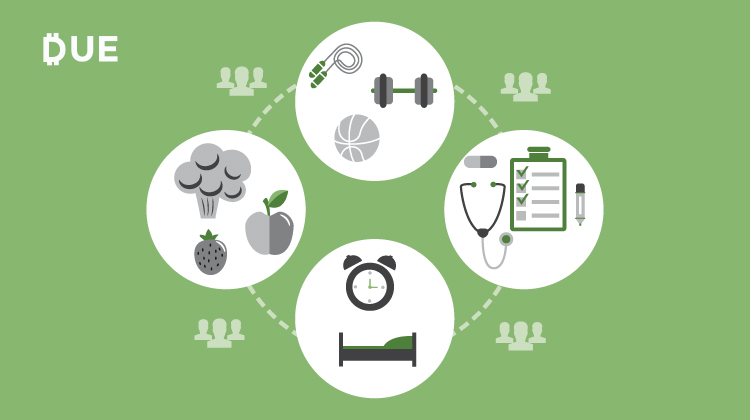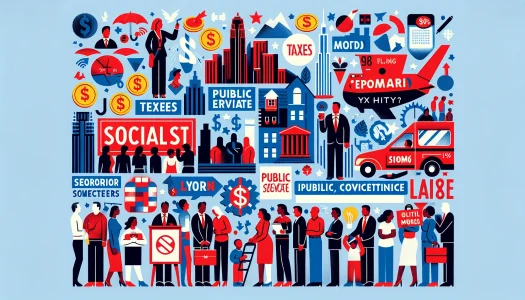I don’t think that anyone plans on digging themselves into a massive debt-hole. But, sometimes, there are unexpected emergencies that you have to address that will drain your savings. Other times you can’t control your spontaneous spending, or you just really need to get that new shiny object, like a new iPhone.
Sometimes spending isn’t your fault — you owe on something you don’t want to pay — like medical bills. I mean, did any of us really think COVID-19 would be so devastating? However, spending more money than you have is something that you do have jurisdiction over. It’s important to be careful with your funds.
I know what you’re thinking — isn’t living below your means being extremely frugal? You know, living off rice and beans, dumpster diving, or stealing WiFi from a neighbor. While there’s nothing wrong with being thrifty and responsible, this is no way to live.
It’s just that always being frugal can be difficult to sustain and can limit life experiences.
Despite this misconception, living beneath your income simply means that you’re spending less or equal than you’re making each month. As a result, you aren’t putting yourself into debt by living off of plastic. And more importantly, this will help you create a more stable financial future.
If you have the extra money to purchase a new TV or go out for an upscale dinner, then, by all means, have yourself a little fun every once in a while. If you don’t? Well, you might have to stick with your old TV or cook dinner at home until you have the cash to enjoy these luxuries.
Table of Contents
ToggleWhy you should live beneath your income.
Of course, living within your means requires discipline and a little sacrifice. However, if you stick with it, you’ll reap the following rewards, in addition to avoiding debt:
- Less stress and anxiety. 77% of Americans are anxious about their financial situation. In turn, this leads to fatigue, insomnia, and strains on relationships.
- It makes you more successful and healthier. When you set a goal, like buying a car, you have a purpose. And, when you reach that goal, you’ll feel a rush of dopamine. What’s more, it’s been found that setting goals leads to success and improves your mental health.
- You won’t obsess over your credit score. Without the need for a line of credit or loan, you won’t be as concerned with your credit score. The reason? You’ll have the cash to buy whatever you need or want.
- The ability to build wealth. When you have the extra funds, you can invest it in accumulating wealth.
- You’ll have more freedom. Without being concerned about money, you can go on vacation, pursue hobbies that interest you, or finally quit the rat race.
- You’ll have financial security. Since you aren’t overspending, you’ll be able to build an emergency fund so that you have the money to tackle unexpected expenses.
How can you live below your means without feeling deprived? Well, here are 10 strategies that you can implement right now.
Live Beneath Your Income for Less Stress
1. Follow the 50/30/20 rule.
Senator Elizabeth Warren popularized the 50/30/20 budgeting rule in her book “All Your Worth: The Ultimate Lifetime Money Plan.” It’s a simple way and effective way to determine and prioritize your spending. And, here’s how it works:
Divides your after-tax take-home income into the following three categories:
-
Essentials (50%).
These are necessary expenses like housing, food, insurance, utilities, transportation, and child care.
-
Wants (30%).
Here the fun things in life, like entertainment, travel, and subscriptions like Netflix. I do 10% to charity, then 20% for these other things.
-
Savings (20%).
You can take this part of your budget to put into a saving account or pay off a debt. If you have never saved — start off with five percent and add thee percent a year until you have your 20%.
If you want to get started, which you totally should, you can use an easy-to-use 50/30/30 budgeting calculator as a jumping-off-point.
2. Save it before you spend it.
Just like Yusuf/Cat Stevens once sang, “I got some money ’cause I just got paid.” And, we all know what happens next. You go ahead and spend your paycheck as soon as it’s in your pocket — you don’t want it to burn a hole in there, do you?
We’ve all been guilty of this. I personally can’t tell you how many times in that past that I paid for my necessities and burned through what was left. As a consequence, though, I didn’t have any funds to fall back on.
A simple way to resolve this is by automating your savings. One of the most common examples of this would be to have a percentage of your paycheck go directly to a savings or retirement account. If you don’t have it, you can’t spend it.
Another trick would be to download a money-saving app.
Examples include:
- Acorns
- Simple
- Qapital
Each round-up change your transactions and place it into a savings or investment account.
3. Start owning and stop owing.
Credit cards sometimes get a bad rap. They’re handy when you need to make a big purchase but don’t have the money upfront, like a trip or home repair. You can even earn cash back or travel miles.
The catch? You need to be responsible. That means if you put $1,000 on your card, you should be able to pay off the balance when it’s due. When you do, you’ll get the most out of your credit card without having to pay back interest on your principal, 37% of U.S. households.
Unfortunately, 37% of U.S. households have revolving credit card debt from month to month. More troubling? Credit card delinquency rates are trending up again — which means hefty late-fee penalties.
It’s easy to fall into this trap. But, if you can’t pay off your balance at the end of the month, then resist the temptation to use your cards. Some ideas would be leaving your card at home when you go out and removing it from online shops. You should also reject new offers and rely on just one or two cards.
And you should also become aware of the term credit card utilization. It’s a way to guide you in how much you spend. In most cases, this should be below 30%. For example, if your card has a $10,000 limit, you should only put $3,000 or less on it.
4. Eliminate frivolous spending.
Americans have a knack for spending a lot of money. In fact, research shows that the average American spends $1,497 per month on non-essential items. That adds up to around $18,000 per year!
Fortunately, there are ways to cut back on your spending. One of the easiest techniques is to ask yourself, “Do I really need this?” when you track your purchases and create a budget. You should actually question all of your purchases outside of the essentials, such as:
-
Memberships:
Cancel expensive gym, tv, and entertainment subscriptions. If there are cheaper options, go with them. Or, try working out from home and exchanging logins with friends and family. If they have Netflix, ask for their login in exchange for your Disney Plus info.
-
Cars:
Here’s the main drawback of purchasing a new car. It can lose up to 20 percent of its value within just a year. Not cool. Instead, buy a more affordable used vehicle. I would actually recommend you go this route on almost everything, including clothes and furniture.
-
Food and Drinks:
Don’t buy lunch every day. Instead, pack a lunch. And, limit how often you go out to dinner. You can cook at home and still socialize by having a dinner party. In case you’re curious, it’s been found that going out to dinner costs 5 times more than cooking at home.
-
Don’t go too cheap.
I have nothing against generic food items. But, there’s a big difference between a quality pair of shoes and cheap ones you find at Walmart. If you really need new shoes, spend the extra money on quality since you won’t be replacing them as much.
5. Don’t keep with the Joneses.
You come home after work and mindlessly scroll through social media. You immediately notice that a friend from college lives it up in Europe, a co-worker just purchased a Tesla, and your cousin just put in a below-ground pool.
Would it be nice to also partake in such luxuries? Of course. But, that doesn’t mean you have to put yourself into debt trying to keep up with our friends the Joneses.
That may be easier said than done. But you don’t know their financial situation. In fact, they’re most likely broke by trying to put up this facade.
6. Keep on paying yourself first.
If you’ve hustled and paid off your debt, such as a student loan or high-interest credit card, then give yourself a well-deserved pat on the back. But, don’t go back to poor financial habits, like making unnecessary purchases.
Instead, put that extra money to good use. For example, if you were spending $300 a month on loan, then take that cash and put it into an emergency fund or interest-bearing savings account. When you do, you’ll be able to weather any storm or purchase items with cash rather than credit.
Once you have enough in your savings, which should be enough to cover at least six months of expenses, you can then dedicate these funds to something more exciting. For instance, you could take that $300/month and put it towards your dream vacation.
7. Delay gratification.
“Being able to delay satisfaction isn’t the easiest skill to acquire,” writes Ilene Strauss Cohen, Ph.D. “It involves feeling dissatisfied, which is why it seems impossible for people who haven’t learned to control their impulses.”
“Choosing to have something now might feel good, but making an effort to have discipline and manage your impulses can result in bigger or better rewards in the future,” adds Dr. Strauss Cohen. “Over time, delaying gratification will improve your self-control and ultimately help you achieve your long-term goals faster.”
And, when you really think about, “the things in life that bring us immediate gratification, like food, drugs, gambling, sex, screaming from anger, or using our credit cards don’t necessarily bring out the best in us,” Dr. Strauss Cohen concludes. “They just ease our discomfort for the moment.”
But, how can you delay gratification when it comes to your spending? Give these hacks a spin:
- Wait for a sale, coupon, or discount.
- When you go shopping, make a list and stick to it.
- Don’t buy, borrow. For example, if you have a backyard and it’s full of leaves, ask if you could borrow a leaf blower from a family member or neighbor instead of purchasing one.
- Try tactics like a one-month spending freeze. Ideas could be not buying groceries until you clean out your fridge and pantry or finding free activities to do on the weekend.
8. Change the nature of your debt.
Do you carry balances on high-interest credit cards? You’re not alone. In fact, 80% of Americans are strapped with debt.
The good news is that it doesn’t have to be this way.
“One of the best debt management hacks people don’t seem to consider all the time is to actually change the nature of the debt you’re handling suggests Rhenn Taguiam in a previous Due article. “In a way, you can ‘control’ your debt in a way that makes it more convenient for you to repay it.”
How can you realistically achieve this? For starters, you could negotiate with lenders to secure a more favorable interest rate. You could also try out debt consolidation or settlement programs. And, if you’re really in dire straits, you could go the bankruptcy route.
9. Boost your income.
Even if you’ve gotten your spending under control, you might want to find ways to make more money. Obviously, this will depend on your other commitments, like your primary source of income or family obligations. But, you may have a couple of hours each week to put a little extra money into your pocket.
The most obvious place to start is by asking for a raise if you’re employed. It can be nerve-racking. But, if you deserve it, then definitely ask for it.
What if you’re self-employed? Add extra revenue streams, like side gigs. You could also earn a passive income. Actually, these would also work if you work for someone else.
If you need some ideas, we’ve previously put together the following lists to inspire you:
- 101 Side Business Ideas That Will Make You an Extra $500 Next Month
- 101 Passive Business and Income Ideas
- 101 Home-Based Businesses You Can Start Today
- 4 Side Hustles You Can Do With Your Family
- 4 Ways Freelancers Can Build Multiple Streams of Income
10. Live off of one income.
Obviously, this won’t apply to everyone. But, if you and your partner can live comfortably under one income, then don’t just blow the other salary on whatever; use it to pay down any debt that you may have accumulated, like your pricey students.
You could also save it or use it to earn a passive income.
[Related: Stop Living Beyond Your Means: 14 Ways to Master Your Finances]
















